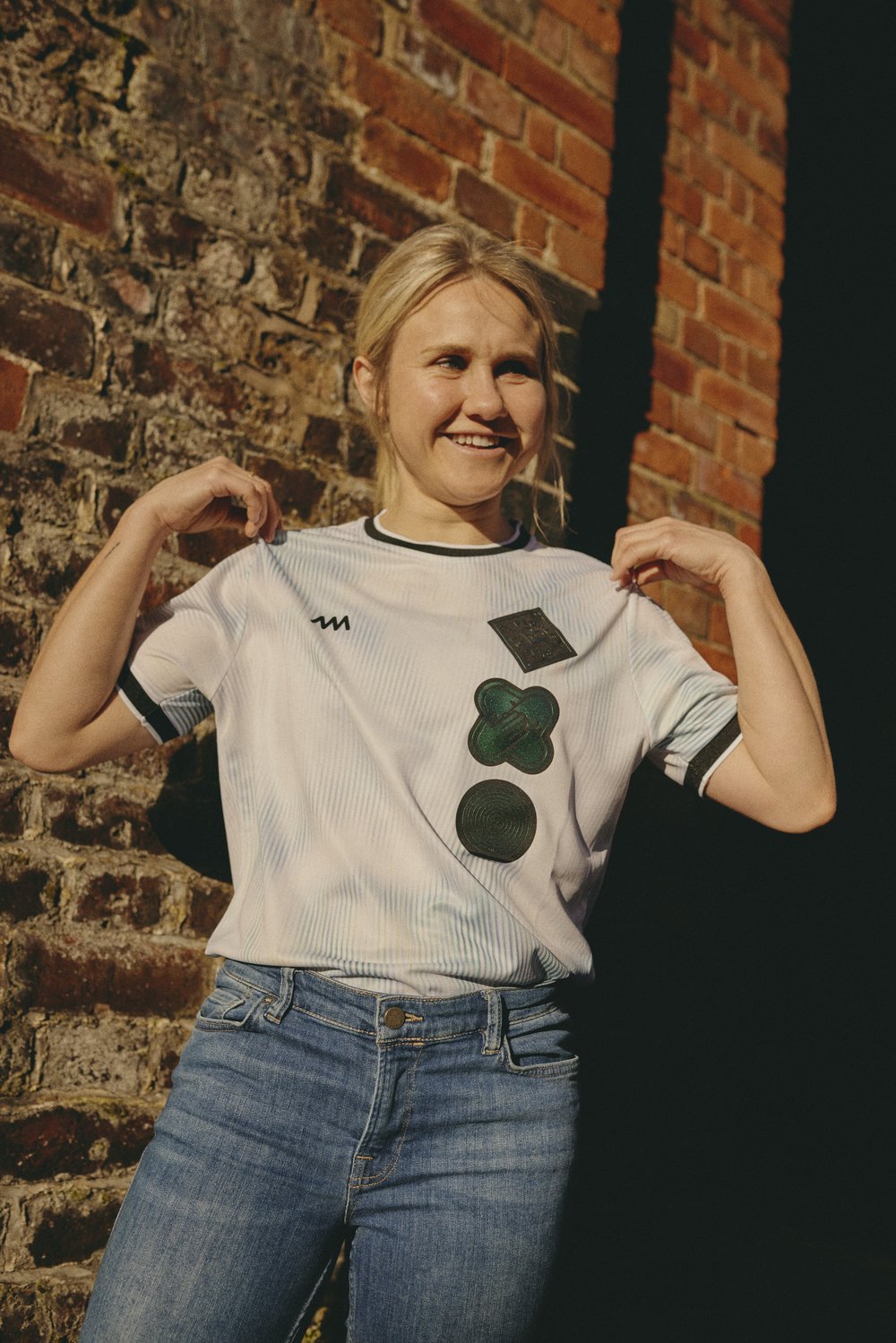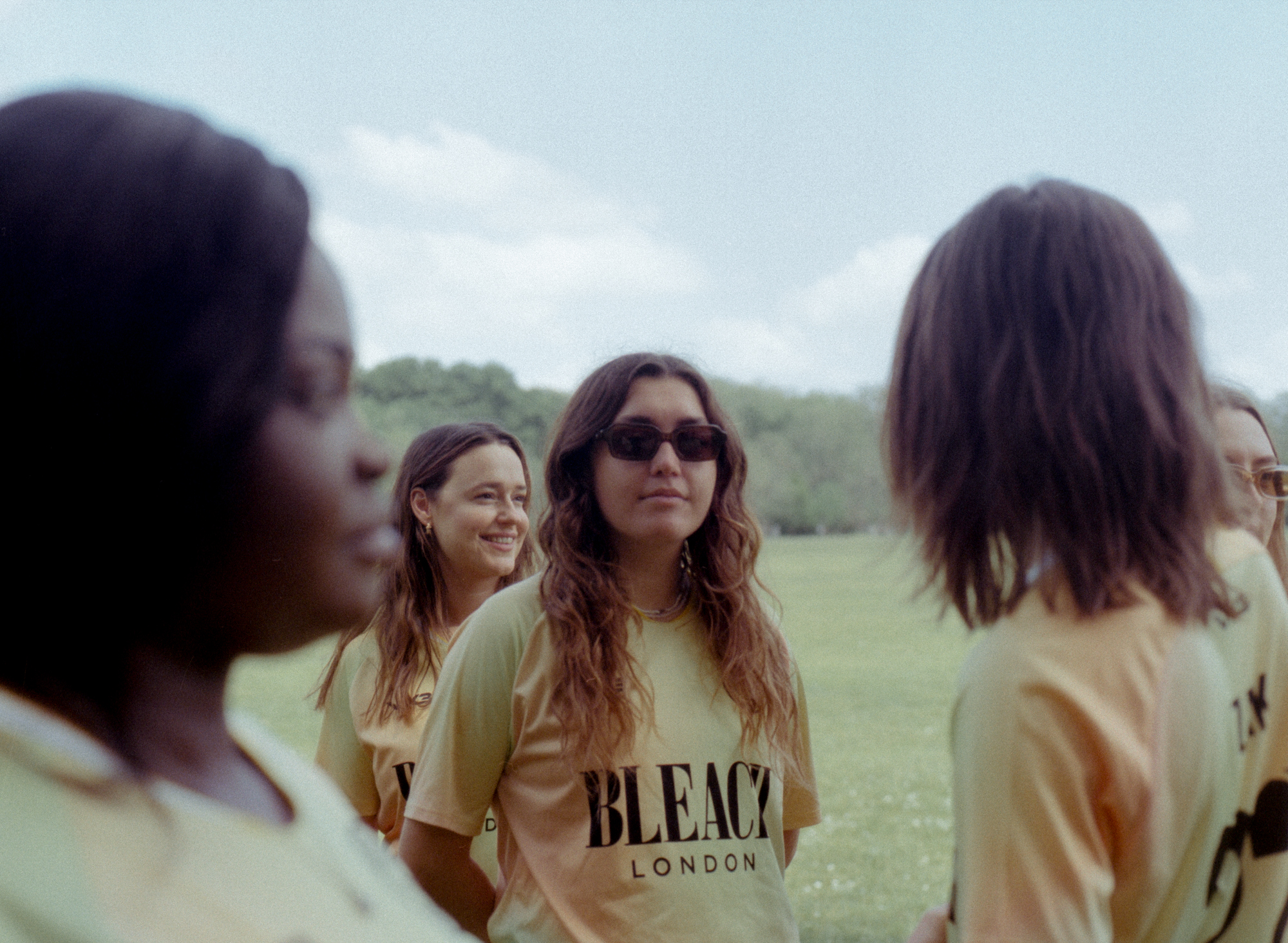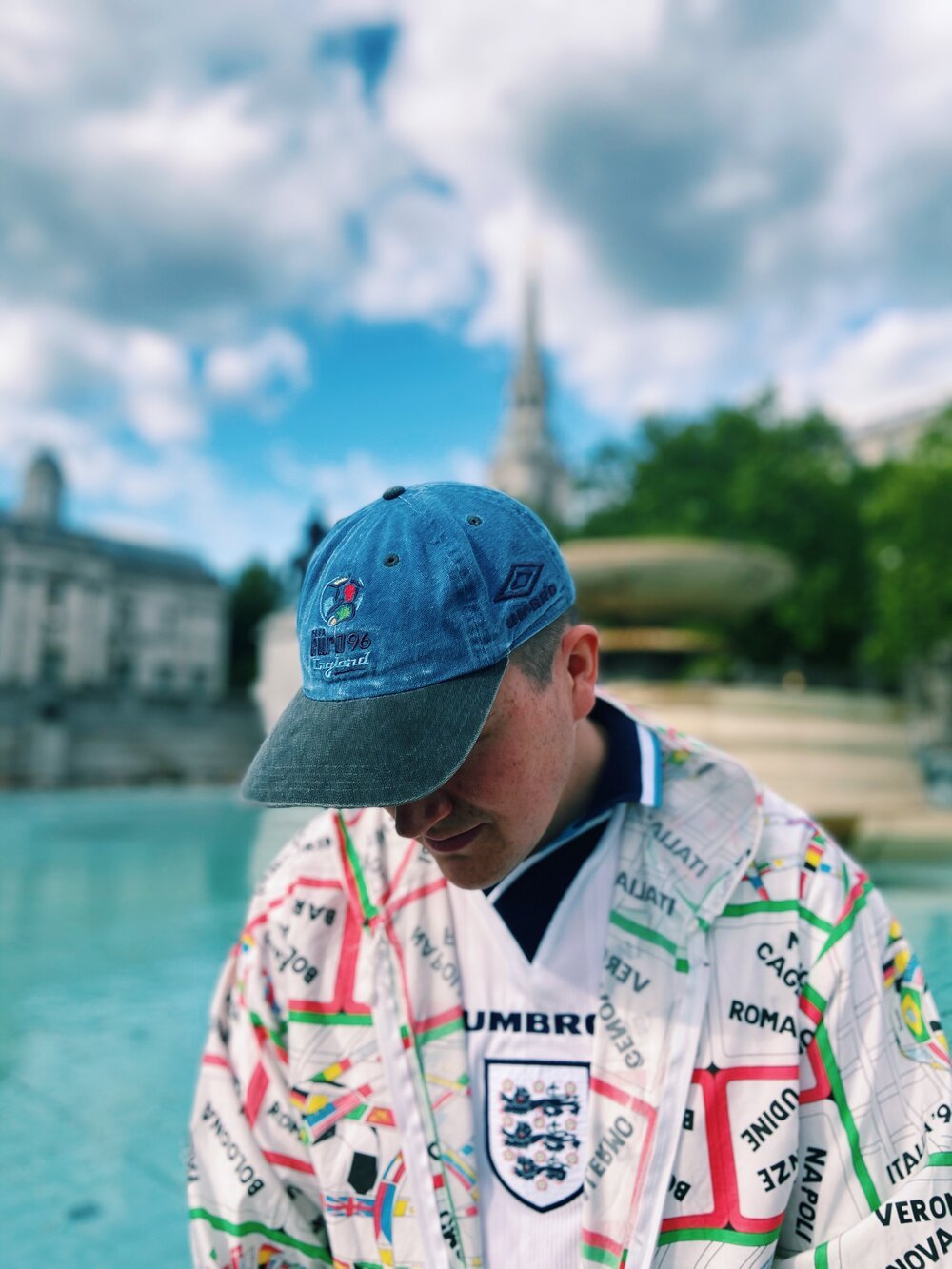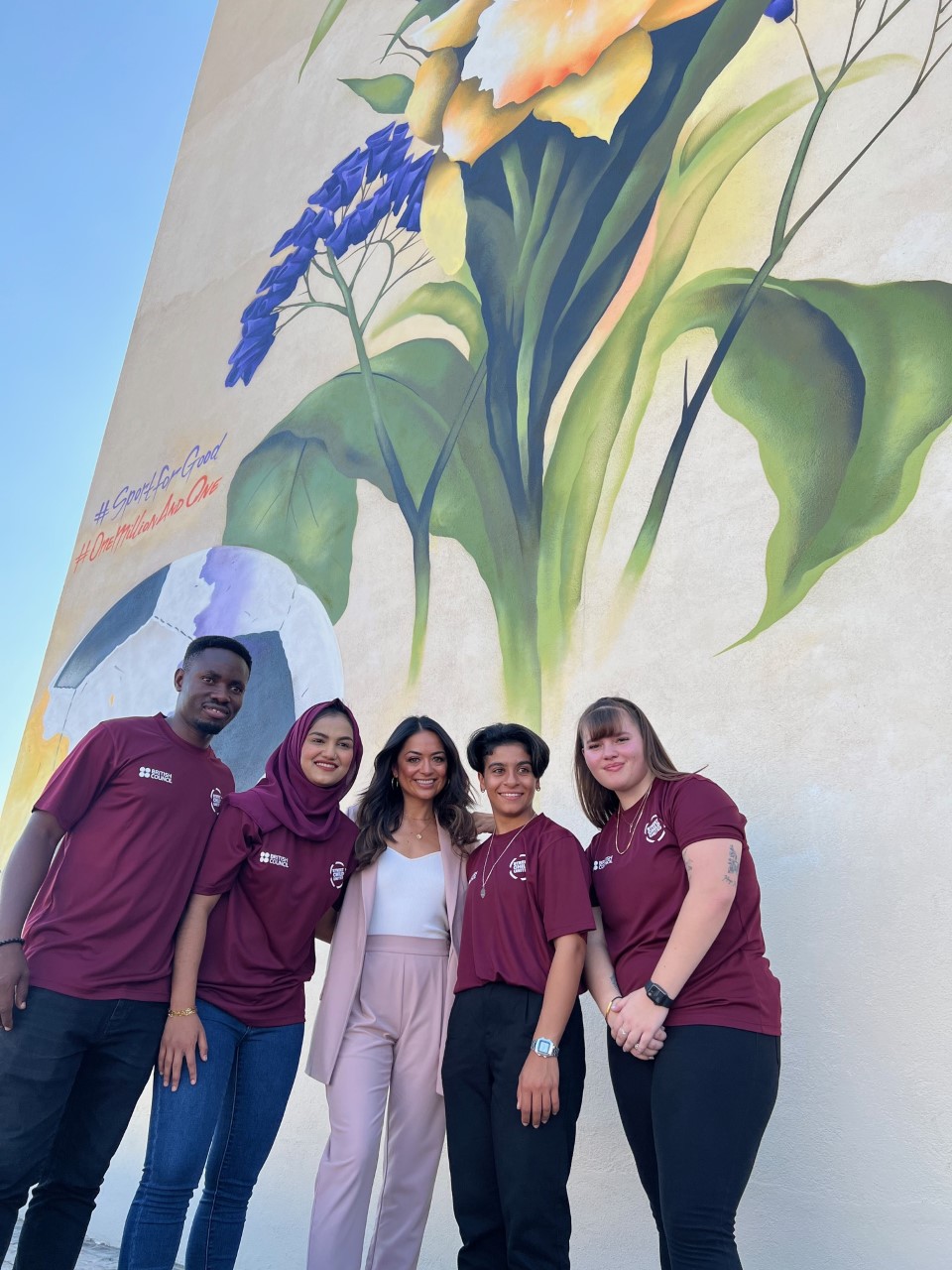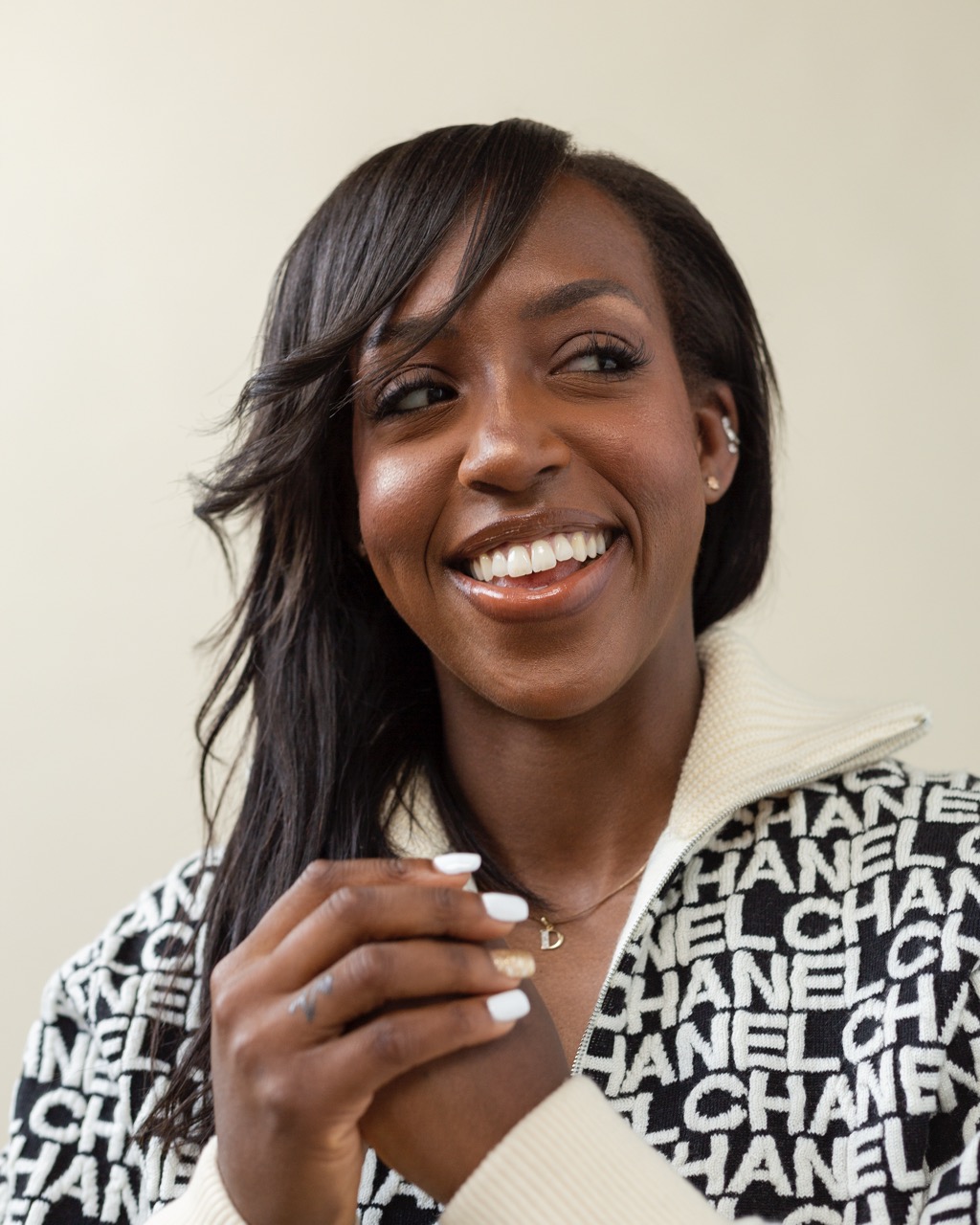A born creative on the pitch, Izzy Christiansen’s strength is going forward, assisting, scoring goals and being an all-round leader. The Everton star started off her footballing career playing as captain for the University of Birmingham women’s team and then progressed into professional football, where she scored an important goal for Man City that assured them the 2014 FA WSL Continental Cup. It’s all been up from here for Izzy. In 2016 she won three vital awards, including the PFA Women's Players' Player of the Year - one of the most prestigious awards in women’s football.
In 2017, she made her full senior England debut, after playing for the U23’s and impressing England coach, Mark Sampson. After playing at a number of major clubs and impressing coaches with her ability to switch up positions on the pitch, it was Everton that Christiansen returned to in 2020. Known by the fans and a key figure in the starting 11, it’s Merseyside that Izzy has firmly stamped her place.
Both on and off the pitch Christiansen has been an inspiration to everyone that surrounds her. She has championed important campaigns such as Her Game Too and has joined Common Goal, the initiative started in 2017 by Juan Mata.
Common Goal aims to maximise football’s contribution to people and the planet by forging a lasting connection between football as a business and football as a catalyst for social transformation. The movement believes that achieving long-lasting change requires collaboration and players and organisations have been coming forward since 2017 to join the initiative that sees them donating 1% of their revenue to help drive progress.
Joining the likes of Jürgen Klopp, the US World Cup winner, Alex Morgan and Chelsea forward Pernille Harder, Christiansen became included in a long line of footballing legends who have backed Common Goal.
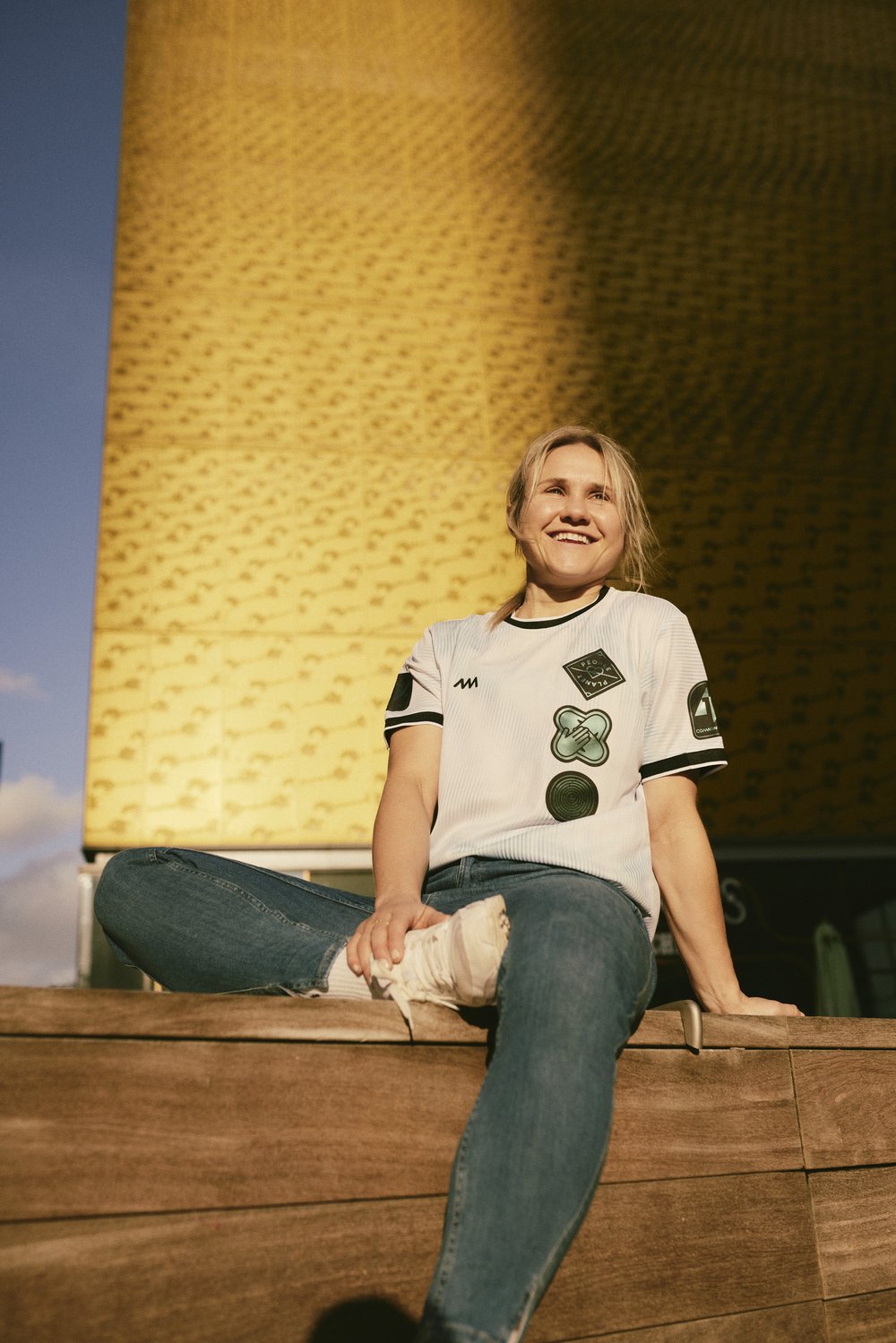
How did you find out about Common Goal?
I found out about Common Goal during lockdown 2020, obviously, we’d all spent a period of time zoned out and disconnected from the world. We were all attempting to live new lives that had just been sprung upon us and suddenly I had a lot of spare time. Other than ticking over and keeping fit, there wasn’t much we could do as footballers. I did a lot of research into Common Goal and saw that it’s an organisation started by Juan Mata, he’s a player I have heaps of respect for. I love watching him play and he’s an inspiration in the men’s footballing industry and the fact he’s having this effect on the world with Common Goal and inspiring other people is amazing. Reading into it and knowing his affiliation with Common Goal, it was a no-brainer wanting to pledge one per cent of my salary to the organisation.
In the first year of me being a member, my 1% went towards improved sanitation in less economically developed countries, which was inspired by my sister’s involvement with tropical medicine. She was a junior doctor at the time and she’d spent 6 weeks out in a part of Africa where they were suffering from poor sanitation. That connection that inspired her really inspired me to direct my 1% into that project.
That was in the first year but in the second year, I’m currently working with the team at Common Goal to identify a project which is relatable to me or something I feel passionately about. I think it’s a superb organisation involved within the wider game now and to see evolve is pretty special. Their involvement with DAZN is a really important step for Common Goal as DAZN is the pinnacle of the women’s game and I see that partnership being really big for both organisations.
Why is it important for you to pledge 1%?
One of the things football offers is connection and affiliation with an organisation or community of people. Fundamentally it connects people and people need people, wherever you are in the world. I think what football is is a tool for change and it’s a lot more than that for many other people over the world. It brings together communities of people who use football as a tool to switch off.
I also think Football created leaders, it creates personalities, it creates encouragement and it really connects people and I think countries where Common Goal has projects in are countries that don’t have many resources and financial backing. I think the way Common Goal connects people and highlights that. To answer your question, If you think about it my 1% is 1% of 100% and for me, from a financial perspective, it’s completely feasible for me in my situation and it’s easy for us to do.
Have you seen where that 1% has gone in the first year?
Yes, so I had a zoom call in 2021 with a lady who is spearheading a project in Malawi. She is somebody who is leading a project through football which is where my money was going. I actually got to see and hear from one of the women from the project who is providing change through football, so this was something that really connected with me. When else would you get the opportunity to speak to somebody else in a country where you’re helping a project, whereby people are connecting through football? Football gives me so much pleasure over here, so projects happening overseas feel even more special.
You mentioned that football connects people. Was there a specific point or memory of football, either playing or watching, that you felt connected to something bigger, that took you out of the day-to-day?
Yes, I grew up in a rural village and used to play football in the evenings with my brother and his friends after school and our mums used to come to the top of the field and shout at us that dinner was ready. That for me is how lost you can get in playing football. That’s what football does, at the time you’re not playing in a 90-minute game, you’re playing for 3 hours until your mum tells you to come in for dinner, and that’s because you’re having so much fun, you forget about everything else.
Does it still feel like that now?
Sometimes. I think there’s huge pressure at the professional level and when you think about those times when you were young and just having fun. When you look at the top performers heading out to the euros this summer, the best performers can completely disconnect themselves from pressure and just live in the moment. Coaches have said to us in the past in pre-match meetings before big games, think back to the girl you were when you were playing in the park, as a way to help you switch off from the pressure that comes with big games.
Are you able to do that?
It’s easier said than done. Playing Old Trafford against Man United, I found calmness during that game, and it’s something that only comes sometimes. The best players experience that every game. On a whole we had a turbulent season, we had a lot of difficulties, but that game in particular, it felt like I was playing on a park as a child again and that was on a big stage in front of 25,000 people. So yeah, being able to bring yourself back to those moments is really special.
Why did you pick that game out as a memorable one?
On a personal level I felt pressure because I am the captain of my team. I was aware that the spotlight was on us and knew that it was a huge game for both teams and I know that we needed to perform because we didn’t want to make a mockery of ourselves or humiliate or ourselves in front of so many people and I think that’s something that hit me hard. I usually do a speech in the huddle right before kick-off, but something that day felt right to speak to the girls in the locker room before the warm up. I said to the girls that i’ve not performed well enough as a captain recently but today I’m going to run my socks off. I held accountability, I said I don’t know what it’s going to be like out there but during the warm up the atmosphere is going to build, so during the warm up make sure you're accustomed to the noise. Saying that really helped us and we ended up scoring in the 3rd minute of the game. Obviously the result on the whole didn’t go our way, but getting my worries off my chest before the game really helped and I performed that day.
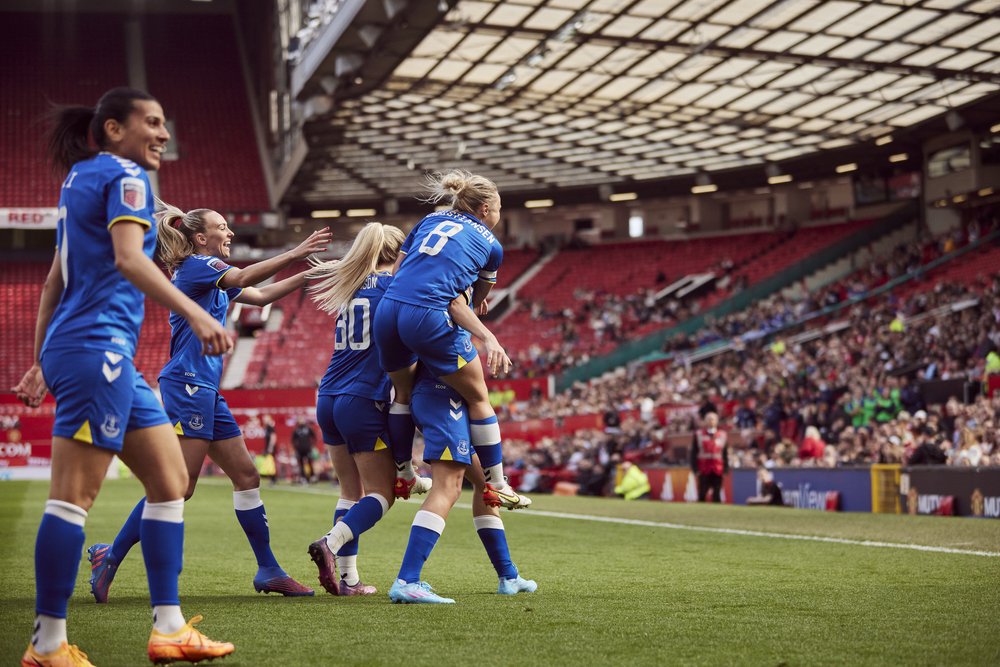
Has anything in your career changed since joining Common Goal? Does anything feel different?
I feel like I belong to the organisation. I feel the way Common Goal includes all their members is good as it gives you sense of belonging aside from your club. Being around like-minded people who are wanting to push for change, I don’t think the pledge needs to be discussed as much as the intent behind the pledge. It’s all relative to the male game and female game. I’d say it gives you confidence because you’re using your platform to inspire and help others. When it’s specific to you that Common Goal funds lots of projects globally, it gives you that sense of belonging to something that you believe in.
Does it give you a sense of freedom and control?
As a player, you don’t often get to decide what team you’re a part of, if you’re going to make the squad, what the results are going to be. You’re very much a small piece in a much bigger picture, where as being a part of something like this, you’ve got the opportunity to decide where you pledge goes. During your career, a lot of your life is dictated by schedules, fixtures, agents, and you’re exactly right in what you’ve said, Common Goal brings a real sense of freedom. The people i’ve worked with have been absolutely amazing in terms of how easy they are to work with, how cool they are, how inspiring they are and I think that’s credit to Juan Mata and Jurgen who has helped Juan form Common Goal. He’s a real leader and I heard them both on the radio and it was the most hooking interview. I felt proud that I was affiliated with these people.
You’re deciding where your next pledge is going to. You’ve mentioned it’s more aligned to you, can you tell us anything about that?
There is a project called Playing for Peace. In short it’s a project which is designed to create young leaders. Using youth educational programs through football to increase visibility into dealing with confident and change and everything about football that are spoken off the pitch. Being on the pitch you’re constantly communicating on the pitch. Those messages translate into off the pitch life and those messages I think this project harnesses and empowers people to become better leaders so they can have an impact on people within their communities. I feel connected to that project because I like role models and i’ve always learned from when i’ve been addressed by a guest speakers or someone that’s done that and been there before. A few years ago we had a talk with the lionesses from Gigi Marvin, the US hockey player. Just her talking about her life, it inspired me and I believe Playing for Peace is a powerful project in terms of how people can use the tools football brings and bring those skills into their daily lives and communities.
Why is communication so important?
To eliminate doubt, I guess. I say it, I'm not the best communicator, but I think it does eliminate doubt.
And if you eliminate doubt, what have you got?
Clarity, ideas.
Will the next project be UK based?
No, more global I think.
Would you be interested in going and visiting?
Yes, definitely! When I joined Common Goal two years ago, that was an option that was discussed - giving you an opportunity to go out to different countries and widending your experiences. This inspired me.
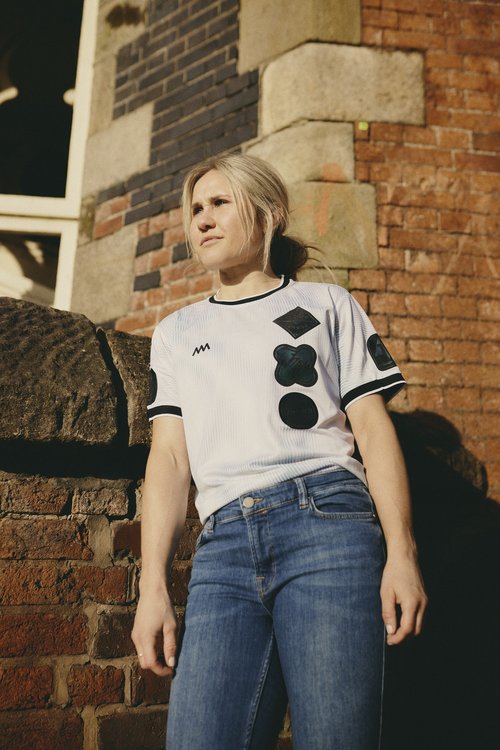
Over the next 2-3 years, where do you see your involvement with Common Goal going, or where would you like it to go?
I think the exciting thing is I don’t know. I would like to visit countries but obviously with the footballing schedule, it can be quite difficult to find the time. In the next few years I see myself definitely wanting to go out and visit the countries and i’d love to organise a trip with the team. From the organisational point of view, the progress that i’ve seen them make in the past two years excites me to know where they’ll be in the next two years. Now with Juan moving on from Manchester United, I believe he’s an intelligent guy and I’m sure whatever his next move is will complement his Common Goal affiliation and I'm sure it’ll benefit the organisation hugely.
Is there anything that you think fans or people who aren’t involved in Common Goal could do too give back?
I believe that in communities and within your local areas, I think talking to people you don’t know is so important. I’m aware that takes a lot of confidence and It’s easier for some than others to have a conversation with a random person you don’t know, however you don't know where the conversations can take you. We live in a world where everything is so fast-paced and we’ve got to get to the next place quickly and I understand that, but if we take a step back and actually go and talk to the people who we don’t know, then maybe they are doing something to inspire others, and that within in itself I think is enough.
Why do you think there’s a higher percentage of players from the women’s game affiliated with Common Goal than the men’s game?
I don’t think they should be compared in any way, but I think it speaks volumes about the type of people involved in women’s football. I think to reach a professional level in women’s football, you have to overcome certain obstacles that you don’t have to in the men’s game. For the men’s game, there is a set-out academy route and although that’s still really tough, the women’s game doesn’t have these steps to build you up, so you have to work it out for yourself - how you’re going to play for a good team or the fact you may have to drive two hours to get to a good team training ground. There have always been barriers and maybe that could be the reason why the women’s game is more interested in social and cultural change than male footballers are.
But don’t get me wrong, male footballers haven’t had it easy. What people don’t see is the mental challenges of being in such a professional environment from a young age. There’s a huge epidemic within men’s football surrounding mental health and it’s clear that it exists, however Common Goal and the members of Common Goal that are male, you can tell they are people who really care about change and that is probably because they’ve had experiences in their career that have inspired them to help others. I think the whole thing, in general, is amazing and I can’t speak highly enough of it. I think too often we compare but I don’t think it’s fair to compare the men’s game and women’s game anymore, I believe the women’s game has got mostly everything the male game has got.
Do you think?
Yes, I mean, we’d of course love to fill stadiums and have professional tiers below the WSL, so the leagues across the whole UK are stronger, but that will definitely come in the future.
Do you think the Euros will change the game?
I really hope so! I hope that there will be more visibility around the game. I personally haven’t seen enough to showcase the games that will be played, in comparison to the men’s game. I haven’t seen enough advertising. You don’t want to overhype it. You want to get the balance right so that the women perform and don’t drown in the media hype. I guess that’s a positive, however, if you put yourself in the shoes of someone who isn’t affiliated with women’s football, do they know when the games are? Do they know there’s a tournament this summer? Do they know England has a good chance of winning the Euro’s? I’m not sure they do. I think that needs to happen and all-round visibility from the media needs to happen more.
If you’d like to follow Izzy’s journey with Common Goal or read more about the organisation then you can do so here.
Photography: Madeleine Penfold
